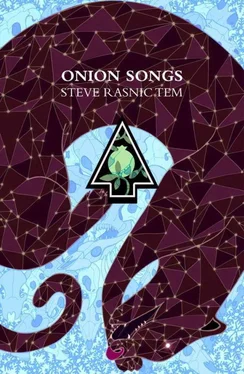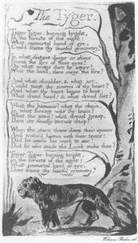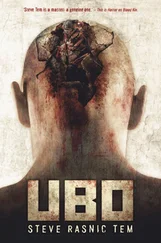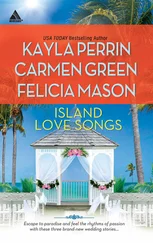Steve Tem - Onion Songs
Здесь есть возможность читать онлайн «Steve Tem - Onion Songs» весь текст электронной книги совершенно бесплатно (целиком полную версию без сокращений). В некоторых случаях можно слушать аудио, скачать через торрент в формате fb2 и присутствует краткое содержание. Год выпуска: 2013, ISBN: 2013, Издательство: Chômu Press, Жанр: Современная проза, на английском языке. Описание произведения, (предисловие) а так же отзывы посетителей доступны на портале библиотеки ЛибКат.
- Название:Onion Songs
- Автор:
- Издательство:Chômu Press
- Жанр:
- Год:2013
- ISBN:978-1-907-68121-9
- Рейтинг книги:5 / 5. Голосов: 1
-
Избранное:Добавить в избранное
- Отзывы:
-
Ваша оценка:
- 100
- 1
- 2
- 3
- 4
- 5
Onion Songs: краткое содержание, описание и аннотация
Предлагаем к чтению аннотацию, описание, краткое содержание или предисловие (зависит от того, что написал сам автор книги «Onion Songs»). Если вы не нашли необходимую информацию о книге — напишите в комментариях, мы постараемся отыскать её.
Onion Songs — читать онлайн бесплатно полную книгу (весь текст) целиком
Ниже представлен текст книги, разбитый по страницам. Система сохранения места последней прочитанной страницы, позволяет с удобством читать онлайн бесплатно книгу «Onion Songs», без необходимости каждый раз заново искать на чём Вы остановились. Поставьте закладку, и сможете в любой момент перейти на страницу, на которой закончили чтение.
Интервал:
Закладка:
Charles returned and stood looking down at her. “I’m getting married tomorrow, Mommy. Are you going to be there?”
“Do you remember any of these things I have told you about?”
He was looking out the window again, distant, as if they were in two separate locations, but he said, “I remember riding my tricycle down a long sidewalk, except it was longer than just long. It never stopped. And I was thinking ‘I can’t ride a trike. Mommy says I’m too little.’ You said I couldn’t have one until I was at least five, remember? But there I was in my memory, riding the tricycle better than any boy ever rode a tricycle before, down that brand new sidewalk and by the trees and these great big houses, these huge houses that I’d never seen before. But that’s all I remember, Mom. Did I ever go to elementary school?”
“You went to elementary school and junior high and high school—you did all of that.”
“Did I have many friends?”
“No, I’m afraid not.”
“Did I have girlfriends?”
“No, but you did lots of things—you watched television and you took the dog for walks—remember Corky, that spaniel I got you?—and we sat on the porch, and I played records for you, so many records—we had so much music in our life. And I told you so many things—I encouraged you. I told you how you would have a great career one day, and get married, and that you’d have many children of your own. You’d be a wonderful father. You’d make me a grandmother . I—we talked about all that. Tell me you remember at least some of that!”
He looked at her with what might have been a smile—it was hard to tell in that soft, doughy face of his in the failing light. “All I remember, Mom,” he said, “is riding that tricycle, and how good I was driving the tricycle, and how good it made me feel. That’s all I remember.”
She looked down at her hands. She’d been picking at her nails. It was a terrible habit—now her fingers were bleeding. “I’m sorry.”
“Don’t be sad, Mom,” he said, but she didn’t think he really meant it, or knew how to mean it. “I’ll have kids. That means you’ll have grandkids. You wanted that, didn’t you? Isn’t that great?”
And she did smile. She said, “That’s great, honey. Sometimes we do get what we wish for,” and closed her eyes. And went to that place where she had not been in many, many years. And when she opened her eyes again, her lovely boy Charles was gone.
She sat alone in a dusty, dry box of a room with no furniture, with much of the window boarded, with trash on the floor and the remnants of numerous fires set for warmth or cooking or perhaps just for mischief. The door was off its hinges, lying in the corner, smeared with a variety of dark substances. She had never been in such a place in her lifetime, although she had heard of such places, seen them in movies and on television. One thing she did know about them was that a woman such as herself did not belong there.
On her slow journey down the stairs she passed a young woman with dark, sad, so terribly sad, eyes. They nodded but did not speak.
THE FIGURE IN MOTION
The majority of his days he had nothing useful to do. At one time he imagined that was what he’d always wanted. In fact, they had planned their mutual retirement around that simple idea. They would read books. They would go to movies. The staffs of the local parks and museums would know them by their first names. He’d had this vivid image of himself strolling the sidewalks arm-in-arm with the love of his life, making but the slightest, almost immeasurable, ripple of forward motion as they walked together through their remaining days. No one would notice the nearly invisible wake of their passage, but that’s what he thought they’d wanted. At some point all motion would stop, and even the memory of them would fade from the world forever. There was a simple dignity in the idea to which he was fully committed.
But then his wife was dying, a terrible disruption so unexpected at first but then gradually inevitable as her illness progressed. During her last few months on the planet he’d attempted to fill himself only with good memories of their life together, a cushion against the crushing loss to come, but he was quickly overpowered by events, and instead was forced to retain a series of images of her passing: her head bowed in burdensome fatigue, sitting shakily upright for a long stare out the window, her face at last too sad for tears, and then that final full day when she insisted on walking by herself across the field of powdered snow.
He’d watched her struggle across that brilliant emptiness, a lone figure changing shape, her shadow altering as sun and clouds moved, lines broken and ragged as she pushed forward into her future, her body so thin and her old dress so tattered she looked as if her skin were shedding while she prowled nervously through the whiteness of that late afternoon.
She left clear marks in the snow, gray holes descending into darkness and a wide scraping across the crystalline surface, making a pattern like angels’ wings, which gradually melted, filled and blended, until that world below his window was clean, untroubled, and unoccupied again.
It had surprised him that he wasn’t tempted to go help her. But that’s not what she wanted—this journey was completely hers to do.
And so through the long years of his retirement without her, it had been these images that had occupied his time. He did manage to read the newspaper and the occasional magazine, to skim volumes of non-fiction, to catch the odd movie, now and then to attend a lecture or museum exhibit, but the main focus of his final years had become memories of her decline, or—when he forced himself to think generously—her radical transformation.
Certainly it must have been some sort of fantastic rationalization that began to let him think of this collection of memories as art.
“I’m too late, aren’t I? I knew I would be—traffic was so bad, and I drive so poorly in bad traffic.” He knew he was saying too much, but he’d lost the ability to edit his speech some time ago.
“Sorry? Too late for what?” The young woman looked pretty, and amused. Young enough to be his daughter.
He imagined the heat in his face might be presenting itself as a blush. “The tour? The Postmodern Figure?”
“Well, yes. But they just started a tour for one of the local college art classes. You could follow right along. If you stay close I’m sure you could still hear. No one would care, really. I promise I won’t turn you in.”
He laughed, but only because he thought he was supposed to. He had no idea why some people thought such dialogs humorous—he just recognized that they did. He hurried along, his long winter coat flapping around his knees. He’d be too hot pretty soon, he knew, and then he’d have to decide whether to be uncomfortable wearing it, or awkward carrying it around. His wife had always had a good suggestion or two for such dilemmas, but he’d found that the further he traveled away from her, the tinier his ability to make a simple decision. It was a kind of perspective he’d never heard of, and could find no mention of in the volumes of art history he’d bought since her death.
“After the war the human figure was trivialized in modern art. It was made to appear insignificant, unreliable, and pitiable. Eventually it all but disappeared from the work of serious artists, as if they thought it beneath their notice, that it had nothing significant to say anymore. Art became dehumanized, less emblematic. As the prime emblem of our daily experience, the figure had to go.”
He wanted to protest, to argue with the young guide, but of course she was only doing her job, and, as far as he knew, was completely correct. But he still found it humbling to hear, and was it just his imagination or did some of these students shrink back a bit from her words, become smaller, a bit self-conscious? He himself became more aware of the size of these canvases, many times human size, so that they seemed architectural, part of the walls, which he now realized were of varying heights, many several stories high, making triangles with the sloped ceilings, which swooped down overhead at times, threatening the heads of the patrons with sharp corners and unfriendly windows. He thought those windows were the kinds of windows an angel might use, or some other holy and invisible creature, and considered this an alarmingly odd perception, although perhaps one not so surprising to have in an art museum.
Читать дальшеИнтервал:
Закладка:
Похожие книги на «Onion Songs»
Представляем Вашему вниманию похожие книги на «Onion Songs» списком для выбора. Мы отобрали схожую по названию и смыслу литературу в надежде предоставить читателям больше вариантов отыскать новые, интересные, ещё непрочитанные произведения.
Обсуждение, отзывы о книге «Onion Songs» и просто собственные мнения читателей. Оставьте ваши комментарии, напишите, что Вы думаете о произведении, его смысле или главных героях. Укажите что конкретно понравилось, а что нет, и почему Вы так считаете.












